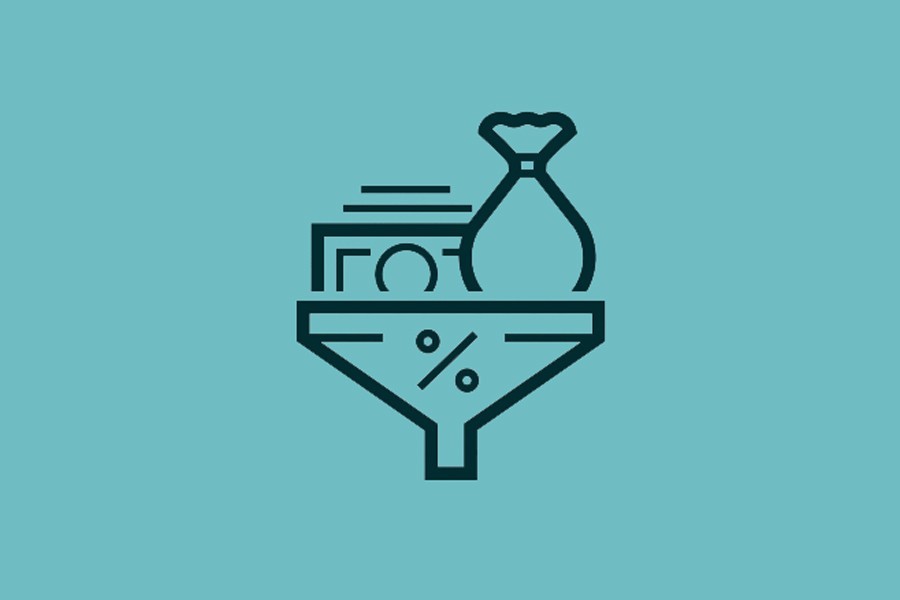The need for taming high inflation in any economy is indisputable. For, it causes pain to general consumers and retards growth. The central banks usually employ measures to reduce/reverse such undesirable effects. The Bangladesh Bank (BB) is also trying to control inflation that has been rising unabatedly since the early part of the current calendar year. As part of that initiative, the BB first raised the policy rate (REPO) by 25 basis points to 5.0 per cent in May and 50 basis points to 5.50 per cent in June. The latest hike of another 25 basis points came into effect on Thursday last.
Bangladesh is not the lone country to experience inflationary pressure. It is now more of a global phenomenon. Central banks in Europe and the US Federal Reserve have been hiking interest rates to put a check on inflation. The Fed's move that is designed to tame the inflationary pressure at home has emerged as a serious problem for others, as the greenback has become costlier. The upward revision of the Repo rate is aimed at making the bank credit expensive and, thereby, keeping the money supply in check. But, how far the latest BB measure would be able to meet that objective is difficult to predict.
Questions are being raised about the effectiveness of the hike in the Repo rate with the lending rate cap at 9.0 per cent remaining in place. The private sector credit growth trend recorded in recent months only substantiates such scepticism. The volume of credit to private sector increased from 13 per cent to 14.1 per cent between May and August of this year despite the hike in policy rate on a couple of occasions. This has happened because bank credit is cheaper amidst soaring inflation. If banks keep the lending rate unchanged while pursuing a soft approach to loan classification, the policy rate hike is unlikely to deliver results.
Monetary policy instruments alone may not work that much in reducing the inflation that is cost-push in nature. The hike in the prices of petroleum products and imported food items have exacerbated the inflationary pressure. So, a few fiscal measures should come in sync with the monetary policy instruments. The volume of imports has gone down in recent months following the increase in LC (letters of credit) margin for not-so-essential goods. The government might consider further tightening of imports. One particular measure --- a sizeable cut in fuel oil prices at home --- might help cut inflation by a big margin. Undeniably, a nearly 50 per cent hike in fuel oil prices has created an unsettling effect on all areas of the economy and put the consumers in serious difficulties. But a downward adjustment will not be that difficult to make since international prices of fuel oils have fallen notably during the past few weeks. The central bank and the government might have to introduce many more fiscal and monetary measures in the coming days if the prediction of a global recession turns out to be true.


